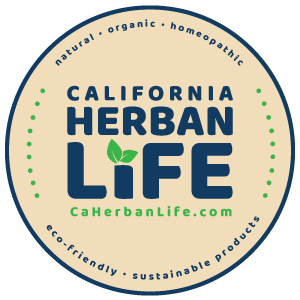Over the years, carbohydrates have gotten a bad reputation. People often associate them with weight gain, type 2 diabetes, and a variety of other health conditions.
Yes, it’s true that processed foods high in sugar and refined grains typically lack important vitamins and minerals. However, many nutrient-dense, fiber-rich foods can actually be very good for you.
While low carb diets can be beneficial for some people, there’s no reason to avoid high carb foods altogether.
Here are 10 high carb foods that are incredibly healthy.
1. Quinoa
Quinoa is a nutritious seed that has become incredibly popular among health-conscious consumers.
It’s classified as a pseudocereal, which is a seed that’s prepared and eaten like a grain.
Cooked quinoa contains 70% carbs, making it a high carb food. However, it’s also a good source of protein and fiber (1Trusted Source).
Quinoa is rich in many minerals and plant compounds and has been linked to a variety of health benefits, including improved blood sugar management and heart health (2Trusted Source, 3Trusted Source).
Additionally, it does not contain any gluten, which makes it a popular alternative to wheat for those on a gluten-free diet.
Quinoa is also very filling since it’s relatively high in fiber and protein. For this reason, it may help promote healthy weight management and gut health (4Trusted Source, 5Trusted Source).
SUMMARY
Quinoa is highly nutritious and may help improve blood sugar management and support heart health. Quinoa is also high in protein and fiber, so it may be useful for weight loss, as both of these nutrients can help keep you feeling full for longer.
2. Oats
Oats are an incredibly healthy whole grain and a great source of many vitamins, minerals, and antioxidants.
Raw oats contain 70% carbs. A 1-cup (81-gram) serving contains 54 grams of carbs, including 8 grams of fiber. They are particularly high in a specific type of fiber called oat beta glucan (6Trusted Source, 7Trusted Source).
Oats are also a relatively good source of protein and contain more protein than most grains (8Trusted Source).
Research suggests that eating oats may reduce your risk of heart disease by lowering your cholesterol levels (9Trusted Source, 10Trusted Source, 11Trusted Source).
Eating oats may also lower blood sugar levels, especially in people with type 2 diabetes (12Trusted Source).
Furthermore, oats are very filling, which could help support healthy weight management (13Trusted Source, 14Trusted Source).
SUMMARY
Oats contain many beneficial nutrients, including fiber and protein. Studies have also shown that eating oats lowers blood sugar and cholesterol levels.
3. Buckwheat
Like quinoa, buckwheat is considered a pseudocereal. Despite its name, buckwheat is not related to wheat and does not contain gluten.
Raw buckwheat contains 75 grams of carbs, while cooked buckwheat groats contain about 19.9 grams of carbs per 100-gram serving (15Trusted Source, 16Trusted SourceTrusted Source).
Buckwheat is very nutritious, containing both protein and fiber. It also has more minerals and antioxidants than many other grains (17Trusted Source).
Additionally, studies in humans and animals suggest that it may be particularly beneficial for heart health and blood sugar regulation (18Trusted Source, 19Trusted Source).
SUMMARY
Buckwheat is highly nutritious and contains more antioxidants and minerals than many grains. Buckwheat isn’t related to wheat and doesn’t contain gluten. Eating it may benefit your heart health and blood sugar regulation.
4. Bananas
Bananas are a popular fruit people love to use in many different recipes.
One large banana (136 grams) contains about 31 grams of carbs, either in the form of starches or sugars (20Trusted Source).
Bananas are also high in potassium and vitamins B6 and C, and they contain several beneficial plant compounds (20Trusted Source).
Thanks to their high content of potassium, bananas may help lower blood pressure and improve heart health (21Trusted Source).
Unripe, green bananas are higher in starch. This transforms into natural sugars as the bananas ripen, turning yellow in the process. Thus, you’ll tend to get more starch and less sugar if you eat your bananas when they’re less ripe (22).
Unripe and less ripe bananas also contain decent amounts of resistant starch and pectin, both of which support digestive health and provide fuel for the beneficial bacteria in your gut (23Trusted Source, 24Trusted Source).
SUMMARY
Bananas are high in potassium, a mineral that plays a key role in regulating blood pressure. Less ripe bananas also contain resistant starch and pectin, both of which can improve digestive health.
5. Sweet potatoes

Sweet potatoes are a delicious, nutritious tuber or root vegetable.
One-half cup (100 grams) of mashed, cooked sweet potatoes with their skin on contains about 20.7 grams of carbs, which consists of starch, sugar, and fiber (25Trusted Source).
Sweet potatoes are also a rich source of vitamin A, vitamin C, and potassium (25Trusted Source).
What’s more, they’re packed with antioxidants, which are compounds that help neutralize harmful free radicals in your cells to protect you against chronic disease (26Trusted Source, 27Trusted Source).
SUMMARY
Sweet potatoes are an excellent source of vitamin A, along with several other vitamins, minerals, and antioxidants.
mpounds. Eating oranges may benefit heart health and increase iron absorption to help prevent anemia.
6. Blueberries

Blueberries are frequently marketed as a superfood due to their rich content of antioxidants.
They consist mostly of water, as well as about 14.5 grams of carbs per 100 grams (42Trusted Source).
Blueberries also contain high amounts of many vitamins and minerals, including vitamin C, vitamin K, and manganese (42Trusted Source).
Studies have shown that blueberries are a good source of antioxidant compounds, which can help protect your body against damaging free radicals. Studies suggest that eating blueberries may even improve memory in older adults (43Trusted Source, 44Trusted Source).
SUMMARY
Blueberries are very healthy. They contain many vitamins, minerals, and antioxidants, and they can help protect against oxidative damage.
7. Grapefruit
Grapefruit is a citrus fruit with a sweet, sour, and bitter flavor.
It contains about 8% carbs and is rich in a variety of vitamins, minerals, and antioxidants (45Trusted Source).
According to some human and animal studies, grapefruit could enhance heart health and improve blood sugar management (46Trusted Source, 47Trusted Source).
Furthermore, other research suggests that certain compounds found in grapefruit could help prevent kidney stones, lower cholesterol levels, and even potentially slow the growth and spread of cancer cells (48Trusted SourceTrusted Source, 49Trusted Source, 50Trusted Source, 51Trusted Source).
However, scientists need to do more studies on the effects of grapefruit in humans.
SUMMARY
Grapefruit contains many beneficial vitamins, minerals, and antioxidants. It may provide numerous health benefits.
8. Apples
Apples are well known for their sweet, tart flavor and crisp texture.
They’re available in many colors, sizes, and flavors, all of which generally contain about 14–16 grams of carbs per 100 grams (52Trusted Source, 53Trusted Source, 54Trusted Source).
Apples also boast many vitamins and minerals, but usually only in small amounts.
However, they are a good source of vitamin C, antioxidants, and fiber (55Trusted Source).
Apples may also offer several health benefits, including improved blood sugar management and heart health (56Trusted Source, 57Trusted Source).
Early research suggests that adding apples to your diet may even be associated with a reduced risk of certain types of cancer. However, more research is needed (58Trusted Source, 59Trusted Source).
SUMMARY
Apples contain a decent amount of vitamin C, antioxidants, and plant compounds. Eating apples may improve blood sugar management, as well as reduce the risk of heart disease and potentially even certain types of cancer.
9. Kidney beans
Kidney beans are a member of the legume family and a variety of the common bean.
Cooked kidney beans contain about 21.5 grams of carbs per 100 grams, in the form of starches and fiber. This legume is also high in protein (62Trusted Source).
Kidney beans are a good source of many vitamins, minerals, and plant compounds. They’re also rich in antioxidant compounds, including anthocyanins and isoflavones (63Trusted Source).
Their numerous health benefits include improved blood sugar regulation and a reduced risk of colon cancer (64Trusted Source, 65Trusted Source).
However, be sure to cook them first because raw or improperly cooked kidney beans are toxic (66).
SUMMARY
Kidney beans contain many vitamins, minerals, and antioxidants. Cooked kidney beans are also a good source of protein and have been linked to several health benefits.
10. Chickpeas

Also known as garbanzo beans, chickpeas are part of the legume family.
Cooked chickpeas contain 27.4 grams of carbs per 100-gram serving, along with almost 8 grams of fiber. They’re also a good source of plant-based protein (67Trusted Source).
Chickpeas contain many vitamins and minerals, including iron, phosphorus, and B vitamins (67Trusted Source).
Not only have chickpeas been linked to improved heart and digestive health, but some test-tube studies suggest they may also help protect against certain types of cancer. More research in humans is needed, however (68Trusted Source).
SUMMARY
Chickpeas are an excellent source of plant-based protein and contain many vitamins and minerals. Eating chickpeas has been linked to benefits for heart and digestive health, as well as potential cancer prevention.
It’s a myth that all carbs are unhealthy. In fact, many of the healthiest foods are high in carbohydrates.
That said, you shouldn’t eat carbs in large amounts if you’re on a low carb diet. In addition, refined carbs, such as white bread and pasta, may be unhealthy in high amounts.
However, you can enjoy these nutritious, delicious carbs as part of a healthy, whole-foods diet.
Written by Adda Bjarnadottir, MS, RDN (Ice) and Rachael Link, MS, RD — Medically reviewed by Sade Meeks, MS, RD, Nutrition for healthline.com




